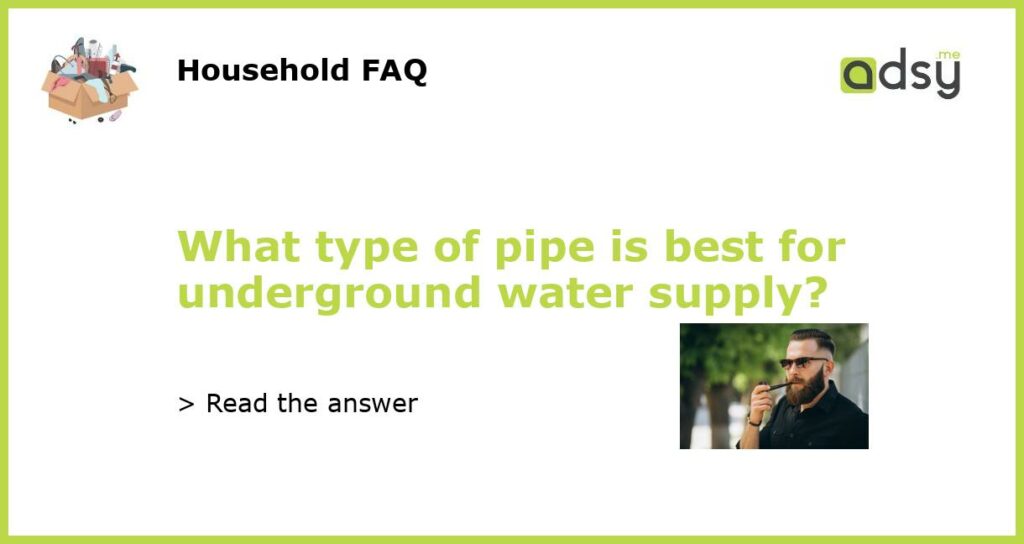The Importance of Choosing the Right Pipe for Underground Water Supply
Choosing the right pipe for your underground water supply is crucial to ensure efficient and long-lasting water delivery to your home or business. With many types of pipes available in the market, it can be challenging to determine which one is the best for your specific needs. In this article, we will explore the different types of pipes commonly used for underground water supply and their pros and cons.
PVC Pipes: Affordable and Durable
PVC pipes are one of the most popular choices for underground water supply due to their affordability and durability. They are light in weight, making them easy to transport and install. PVC pipes are also resistant to corrosion, which makes them suitable for use in areas with acidic soil. However, PVC pipes can become brittle over time, especially in extreme temperatures, which can lead to cracks and leaks.
PEX Pipes: Flexible and Versatile
PEX pipes are gaining popularity in underground water supply systems due to their flexibility and versatility. They are made of cross-linked polyethylene, which enables them to bend and expand without breaking. PEX pipes are also resistant to corrosion and scale buildup, which reduces the possibilities of clogs and leaks. However, PEX pipes are relatively new in the market, and their long-term durability is yet to be fully established.
Copper Pipes: Durable and Resistant to Tempering
Copper pipes have been used for underground water supply for decades due to their durability and resistance to tempering. They can withstand high pressure and extreme temperatures, making them suitable for use in different environments. Copper pipes are also resistant to corrosion and scale buildup, which reduces the possibilities of leaks and clogs. However, copper pipes are expensive compared to other options and can be challenging to install, as they require expertise in soldering.
HDPE Pipes: Highly Resistant to Chemicals and Abrasion
High-density polyethylene (HDPE) pipes are known for their high resistance to chemicals and abrasion, making them a reliable choice for transporting water underground. HDPE pipes are lightweight, making them ideal for long-distance water supply projects. They are also resistant to corrosion and scale buildup, which reduces the possibilities of leaks and clogs. However, HDPE pipes can be challenging to install due to their stiffness, which requires specialized equipment and expertise. They are also relatively expensive compared to other options.
Choose the Best Pipe for Your Underground Water Supply
Choosing the right pipe for your underground water supply requires careful consideration of various factors, such as the soil type, water pressure, and temperature, among others. PVC, PEX, copper, and HDPE are some of the most commonly used pipes for underground water supply, each with its pros and cons. Be sure to consult with a professional plumber to determine the best pipe for your specific needs and budget.






